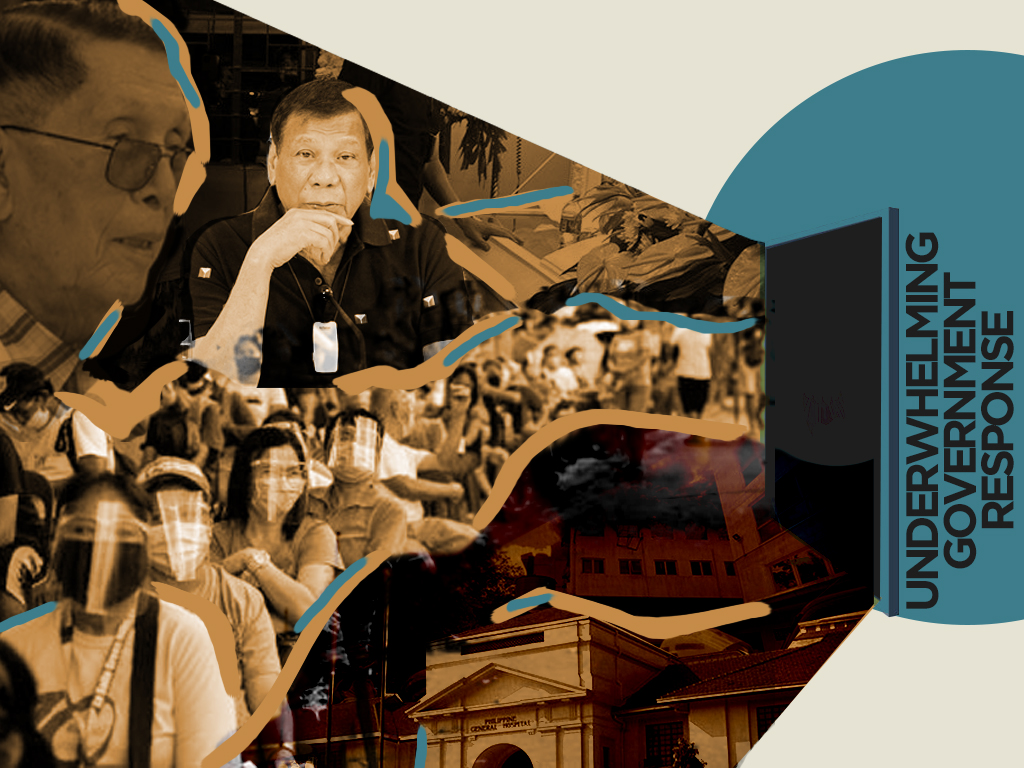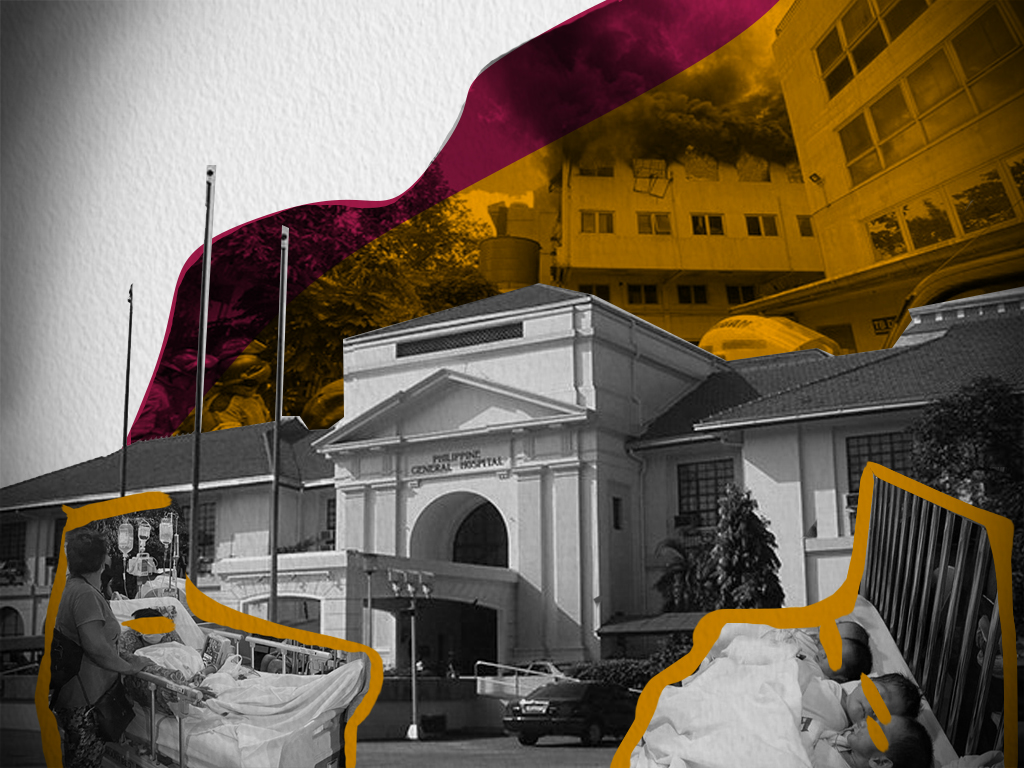Media Review
Every two weeks, CMFR will provide a quick recap of the media coverage of the biggest stories or issues, noting the same slips that our monitors have been doing. We intend this as a quick mapping of news, providing a guide for journalists and identifying gaps in reporting, the lack of interpretation and analysis as necessary. This section also hopes to engage more public attention and participation in current events, and for them to learn the practice of media monitoring. It is after all the public that serves as the best watchdog of press power.

MEDIA COVERED a range of issues during the latter half of May, among them the still urgent threat of COVID-19; Duterte’s engagement of Enrile as presidential cheerleader on the WPS; the commemoration of the fourth anniversary of the Marawi siege; and the divergent legislative priorities in Congress. But news coverage nevertheless proved thin. With so little being done by government, few dared to question what is now a pattern of underwhelming government response and action to the country’s problems.
Vaccine program
Although a large percentage of the population is still resistant to vaccination, government has not indicated how it will overcome it to attain the goal of getting 70 percent of the population vaccinated by end of 2021. CMFR published an infographic listing questions that the media should keep asking about the vaccination program if only to prod the agencies and the LGUs to speed up the immunization, as well as address problematic issues about brands and the shortfall in supplies.
When hundreds overwhelmed vaccination centers that had the Pfizer vaccine, DOH told LGUs not to reveal what vaccine brands they’re administering. Supported by Duterte, the policy denies citizens their right to “informed consent” as some experts pointed out, and at the same time compels those who prefer certain brands— as is their right— to further endanger themselves by having to go back and forth from their homes to the centers to find out if their preferred vaccines are available.
CMFR jeered the media’s coverage that was dominated by officials’ reactions to the directive, which once again sidelined the need for government to clarify health risks and the fundamental principle that citizens have a right to know what they’re going to be vaccinated with since it is their health and well-being that’s involved.
The media also reported on the illegal sale of government-procured vaccines, which went viral in the social media posts of individuals who said they had been offered vaccination slots for a fee. The controversy was treated as a matter for police investigation, without noting the possible accountability of government agencies for this kind of lapse.
West Philippine Sea
As the DFA kept up its filing of protests against China’s presence in the WPS, the Palace chose to prop up Duterte’s position by engaging in his defense former senator Juan Ponce Enrile, who essentially told the president to “ignore his critics” and even added that history will prove Duterte right.
Rappler stood out for its critical coverage of Enrile’s participation in Duterte’s weekly televised briefings. Pia Ranada’s report described what happened as merely a “mutual admiration party.” Editor Marites Vitug recounted Enrile’s different position on the matter during the Aquino administration. Manny Mogato’s op-ed piece for Rappler traced Enrile’s political history and called his appearance an attempt to curry favor for his comeback.
On social media, critics dismissed Enrile’s views as having little significance or relevance.
Marawi
The Manila-based media revisited Marawi City during the commemoration of the fourth anniversary of the siege. Much of the coverage focused on the plight of residents who have not been able to return to their homes, and the deep disappointment over the slow pace of the city’s rehabilitation. Some broadsheets, however, echoed the government narrative, picking up official updates and ignoring the obvious delays in reconstruction.
CMFR notes how media have tended to sideline the issues of Marawi except in the month of May, when it is obliged to observe another milestone of the siege and the devastation of the city and its community.
Accidents and crimes
CMFR criticized the shallow treatment of the fire in the Philippine General Hospital, the country’s largest COVID referral facility. Reports hardly touched on the state’s failure to support the government institution that plays such a central role in medical services as well as training health professionals.
Journalists also reported crimes against vulnerable groups, with no context or analysis. Ebeng Mayor, a transman, was raped, robbed and murdered by an acquaintance and two others. Edwin Arnigo, a person with autism, was killed by the police, who claimed Arnigo tried to grab their weapons. Only the Inquirer had an editorial to call attention to the emerging pattern of attacks against LGBT individuals and persons with special needs, calling on government to take action.
Meanwhile, newly-installed PNP chief Guillermo Eleazar deviated from his predecessors’ policy of secrecy and opened 61 drug cases for the DOJ’s scrutiny. Reports quoted the reactions of human rights groups that this was still a small number in comparison to the thousands of cases recorded – a subject that deserves follow up from the media.
Cha-cha returns to Congress
So far, the Senate has not joined the House’s hasty approval of the bill proposing economic changes that will require charter amendments. The “economic Cha-Cha bill” was passed in the House on second reading, but media reported the lukewarm response among members of the upper chamber.
Reports also noted that the Bayanihan 3 stimulus package bill was approved by the House on second reading, although Duterte did not certify it as urgent. Journalists said its counterpart bill in the Senate has not moved forward with the adjournment of Congress on June 5.
Meanwhile, media remained divided on the performance of newbie senator Christopher “Bong” Go when his colleagues, led by Frank Drilon, questioned him about his sponsored bills to increase hospital bed capacity and renationalize two hospitals. CMFR noted the different ways it was reported. While some portrayed Go in a favorable light as a sponsor of the bills, others more accurately pointed out that the senator had not done his homework and was shown up by his peers. As Go’s political ambitions seem to be reaching for an even higher office than the Senate, media are right in scrutinizing how well or poorly he is doing in his current post.





Leave a Reply